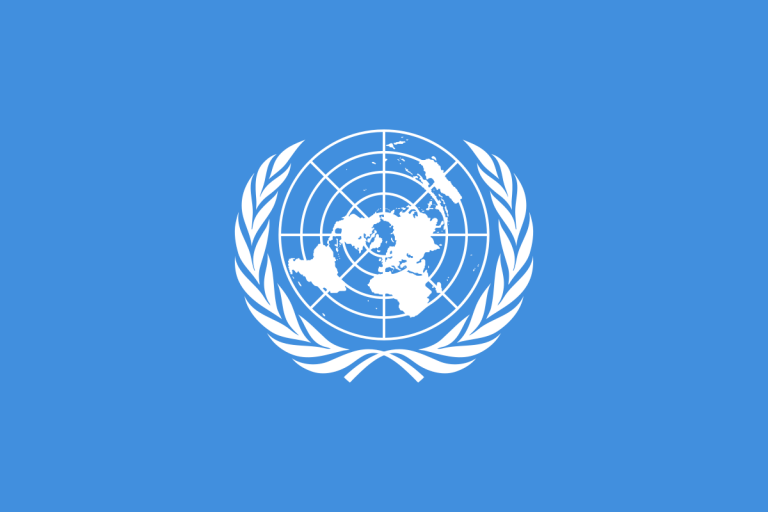The UN System in Nigeria, alongside partner NGOs, are collectively appealing for 1.08 billion dollars to provide urgent aid to 7.8 million vulnerable people in Nigeria’s North East.
The UN says the funding needed was less than 12 dollars a month to save someone’s life.
Mr. Edward Kallon, the UN Resident Coordinator in Nigeria, made the appeal on Thursday, during a high-level virtual meeting on Nigeria’s humanitarian response with the theme “North-East Nigeria: Act now, Avert the Worst”.
Kallon said the urgent appeal was necessitated, following a resurgence in violence that continued to ravage communities and the extraordinary challenges from the COVID-19 pandemic, a global health crisis no country was adequately prepared for.
He added that the steep rise in prices, as well as movement restrictions, due to the COVID-19 pandemic caused insufferable shocks.
The UN Envoy further noted that an estimated 4.3 million people were now facing food insecurity at crisis or emergency levels and that increased food insecurity would lead to higher levels of malnutrition.
Kallon said that without immediate support, one out of five malnourished children could die without treatment.
“Despite tremendous efforts by the humanitarian community to feed over 2.5 million people, violent attacks continue, preventing people from reaching their lands and rebuilding their livelihoods.
“Every year of the crisis, an additional one million people have become food insecure.
“Children and women, in particular, are bearing the brunt of the COVID-19 pandemic. Prevention measures, such as lockdowns, physical distancing, and school closures are impeding education, jeopardising the future of 4.2 million children.
“Protection concerns are paramount, and the risks of exploitation, domestic violence and abuse are higher than ever, for women, boys and girls.
“At the same time as we are fighting the pandemic, I have been shocked, saddened and outraged by the brutal attacks targeting civilians, including aid workers, in recent weeks.
“Incidents in which villages have been brutally attacked, houses and property set ablaze, and people burnt alive.
“Today, 1.9 million people remain internally displaced in the BAY states. Since the beginning of the year, nearly 60,000 people were forced to flee their homes, some for the second or third time.
“More than a third of these are sleeping out in the open,” Kallon said.
Kallon said funding for the humanitarian operation is at a historic low, explaining that with more than half-way through the year, aid organisations received less than a third of funds needed to provide life-saving assistance to nearly eight million people.
He said now is the time for all stakeholders to take coordinated action, sustained by sufficient resources.
Kallon said the COVID-19 pandemic is devastating and its destabilising effects would be distressing Nigeria’s most fragile region, stressing that unless action was taken now, the country should be prepared for a significant rise in conflict, hunger and destitution in the north-east.
He added that community transmission of COVID-19 is of grave concern and urgent actions must be taken to prevent the virus from taking hold in IDPs’ camps.
He noted that four out of five people in these camps lived in overcrowded conditions, with makeshift and temporary shelters – built in close proximity to each other, making physical distancing impossible.
According to him, while it is a priority for IDPs to be able to return home, unfortunately the persistent insecurity may not yet present conducive conditions for safe, voluntary and dignified returns.
According to Kallon, the hard-won efforts of the UN and partners a few years ago is now in jeopardy, explaining that previous rapid joint mobilisations succeeded in reversing a situation where hundreds of thousands of people were on the verge of famine.
He said that not only was famine averted, but many people who had seen their lives shattered by the conflict, were starting to rebuild their lives and communities. There were hopes that we had turned a corner and we could start focusing on recovery and development
Also speaking, Mr Peter Hawkins, Country Representative of UNICEF in Nigeria, said children, especially those in camps, remained one of the most vulnerable in the COVID-19 pandemic as they were out school with no access to immunisation.
Hawkins said UNICEF was putting measures in place to ensure children had access to Immunisation amid the COVID-19 pandemic.
“We will not want to walk out of a pandemic with children dying of measles and infected with polio,” Hawkins said. (NAN)
NAN










